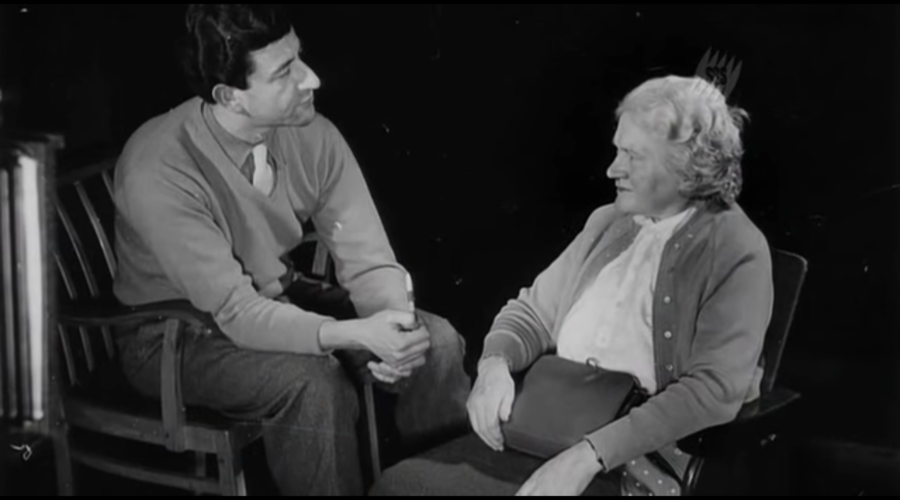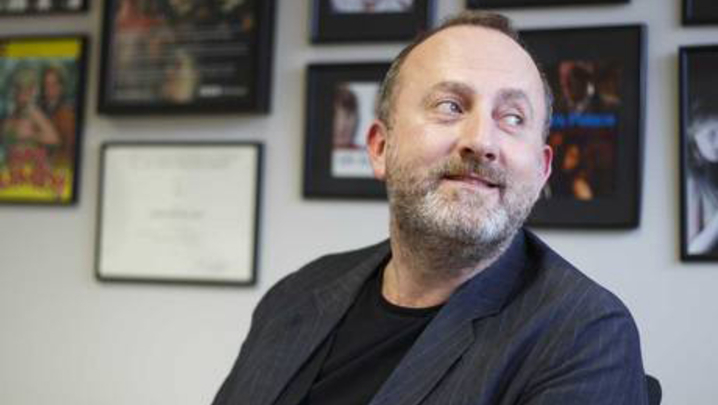The distinguished and painstaking producer and documentary maker, Peter Morley, has died, aged 92. He was best known for directing ITV’s acclaimed coverage of the state funeral of Sir Winston Churchill in 1965 and for conducting the only interview with Hitler’s younger sister, Paula Wolff.
Morley was one of the pioneers and innovators of the then nascent British television sector. The son of Jewish refugees from Nazi Germany, in 1956 he joined Associated Rediffusion as a director. Over three years at the new ITV company he produced more than 80 plays.
As a programme maker working in the exciting new medium, from the beginning he was able to adopt his own approach. “There was nobody to tell you what to do or how to do it,” he recalled. “Everything was live. The word video, let alone video-recording, hadn’t been invented.”
Jeremy Isaacs, in his autobiography, Look Me In The Eye, A Life in Television, described Peter as a “tall, thoughtful, calm” man “with dark eyes, a long face and bony jaw.”
The pair worked together at Rediffusion, where Morley was a producer on the influential This Week current affairs series launched in 1956. As Isaacs relates, Morley wanted to direct “proper films, longer documentaries.”
Peter was born in Berlin on June 26, 1924. His father exported women’s clothes and spent a lot of time in London, where he had an office. His parents, fearful of Hitler’s ascent to power, arranged for Peter and his brother and sister to move to England. There they were educated at a progressive boarding school in Kent, Bunce Court School.
The school was run by Anna Essinger. She had relocated the school from southern Germany because of anxieties concerning the Nazis and her mostly Jewish students.Morley’s first documentary, Once Upon A Time, focused on Essinger and her school. Parts of it would subsequently form important components of later films about the Kindertransport.
From an early age Peter wanted to work in film. Having left school he secured a job as a “rewind boy” at the Dominion Theatre in London’s Tottenham Court Road. The job involved carrying weighty cans of celluloid to an outside projector.
Following military service with the 8th Hussars, a tank division, Peter attempted to find work in the British film industry. Eventually he was employed as a projectionist earning £5 a week.
It was almost impossible to establish a career. Later he had to work as a tea boy before finally securing a job as a film editor.
Working for Rediffusion in ITV’s formative years, Morley achieved a reputation for his meticulous and perceptive documentaries. In 1959 he interviewed Paula Wolff and others who knew Hitler.
“They came in one by one and I did these interviews,” he said. “You could see that all of them revered [Hitler] without embarrassment. It seemed perfectly natural to them to be still very much under his spell.
“What they said wasn’t earth-shattering but... they gave enough to get a little insight into the Führer. Hitler’s sister was very shy. It was quite difficult to get things out of her.”
The programme Tyranny: The Years of Adolf Hitler was ITV’s first one-hour documentary and was seen by 10 million viewers. Its success enabled Peter to persuade ITV to transmit a studio production of Benjamin Britten’s opera, The Turn of the Screw. The programme was shown minus a single commercial.
Masterminding ITV’s coverage of Churchill’s funeral, a live five-hour transmission, won Peter a Bafta and the 1965 Cannes Grand Prix.
Peter was made a fellow of the RTS in 1979 and awarded its silver medal in 1969 in recognition of producing and directing the 13-hour documentary, Rediffusion Television's The Life and Times of Lord Mountbatten, shown by Thames Television.
At Yorkshire Television he made the award-winning Kitty: Return To Auschwitz. Peter was a valued member of the RTS History and Archive Group from 1999-2011.
Peter Morley, OBE, born June 26, 1924. He died on June 23, 2016


